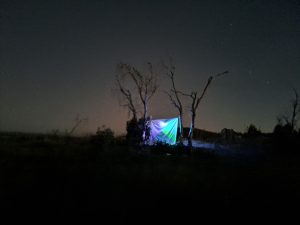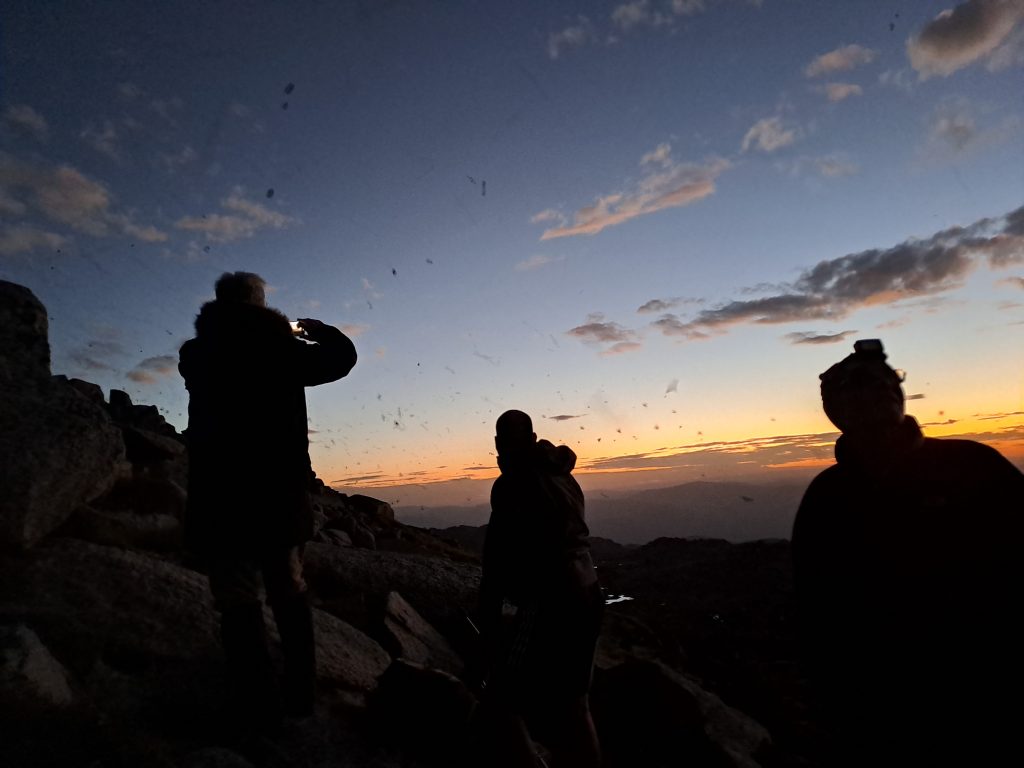16 January 2025

As part of Journal of Experimental Biology’s 100-year anniversary celebration in 2023, The Company of Biologists launched two new funding initiatives aimed at supporting junior faculty staff setting up their first laboratory and research group. This critical career stage is markedly challenging considering the few funding opportunities available. We recognise that junior faculty staff represent the future of the field and created these funding opportunities to continue to support the experimental biology community.
One of our 2024 grant awardees is Pauline Fleischmann from Carl von Ossietzky University Oldenburg, Germany.Pauline was awarded a Research Partnership Kickstart Travel Grant, which provides funds to support a junior faculty member visiting another institution to initiate a new research partnership and develop, write and submit a major grant application for collaborative research. The Research Partnership Kickstart Travel Grant enabled Pauline to start a new collaboration with Eric Warrant from Lund University, Sweden. With the travel grant, Pauline was able to visit Eric’s Bogong moth field sites in Australia and to secure a research grant based on this collaboration to study the nature of the magnetic sense of nocturnal long-distance navigating Australian Bogong moths, Agrotis infusa.
One barrier to starting a new collaboration, particularly in field biology, may be the inability to share expertise and plan a new project in person. Pauline was interested in investigating the nature of the magnetic sense in Australian Bogong moths. Bogong moths travel incredibly long distances, over 1,000 km, in Australia during the night to escape hot conditions and begin hibernation-like ‘summer sleep’ called aestivation and then travel back to their birthplaces to breed. Pauline was able to travel to Australia to visit Eric’s field sites and learn more about Australian Bogong moths, an essential first step to planning neuroethological experiments.
“For me it was crucial to experience the moths in their natural habitat to get an impression of their natural way of living,” notes Pauline. “We went light trapping to catch moths. In addition, we visited two aestivation sites of the moths, Mount Morgan and Mount Kosciuszko. At the latter, we had the chance to observe the flight of countless moths at sunset, that is an astonishing event,” recalls Pauline. Additionally, Pauline and Eric were able to discuss feasible techniques to study different aspects of how moths use magnetoreception for spatial orientation to navigate long distances. “Linnea Rosberg, PhD student of Eric, also showed me, for example, how to prepare them for experiments in the flight simulator (how to attach a stalk on their dorsal thorax),” remarks Pauline.

Eric’s expertise with Australian Bogong moths, insect vision and navigation in combination with Pauline’s expertise in magnetoreception in insects lent itself to a project which will aim to understand the role of magnetoreception for spatial orientation in Australian moths and its underlying mechanisms, a vital question as long-distance nocturnal navigators rely on this journey to escape the torrid heat and then rely on the same journey back to breed and die. On the back of the visit, Pauline was awarded a Konishi Neuroethology Research Award by the International Society for Neuroethology recognising early-career investigators. In addition, Pauline and Eric are collaborating with 23 other principal investigators on another major grant application. The “NaviSense” cluster of excellence initiative was invited by the German Research Foundation to submit a full proposal in the summer of 2024.
Overall, the Research Partnership Kickstart Travel Grant from Journal of Experimental Biology provided an invaluable opportunity for Pauline to begin an exciting collaboration with Eric and to secure a research grant based on this collaboration.
“The Kickstart Travel Grant enabled me to visit a field site that would not have been possible otherwise. During my first postdoc, the coronavirus pandemic prevented visits, and all personal meetings were cancelled. That is maybe the reason why I especially think that such visits are priceless. I am very thankful that I had the chance to do this visit – I got the Konishi research grant after I applied for it after my visit, and my background knowledge and first-hand impressions were indispensable for the interdisciplinary discussions during the preparation of the major grant application.”








You must be logged in to post a comment.